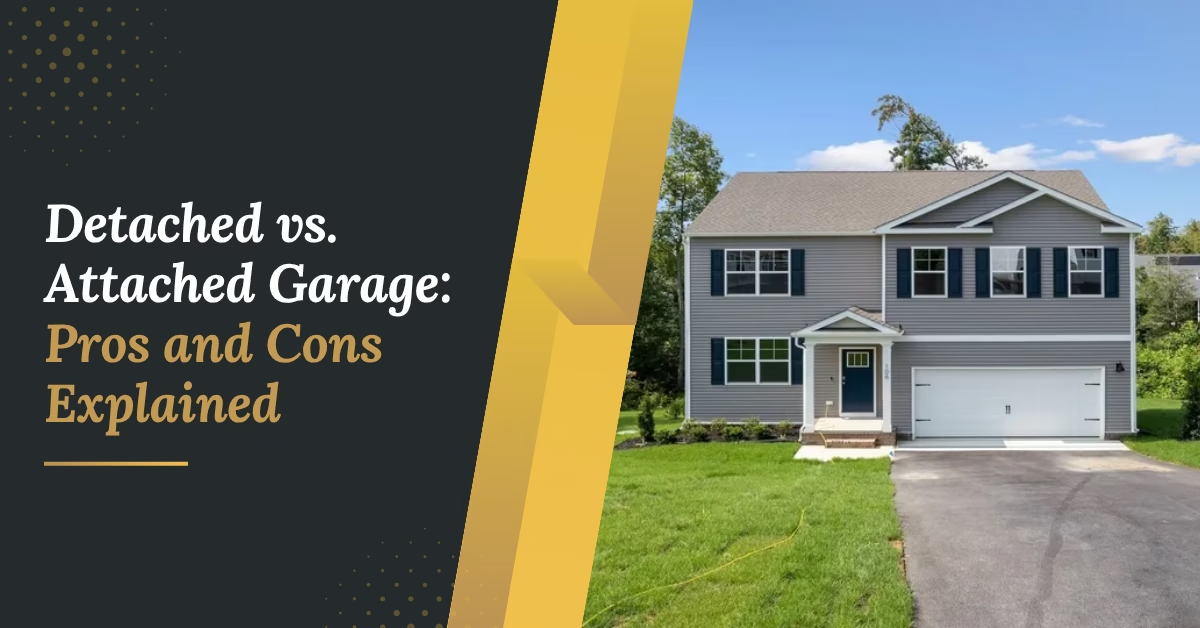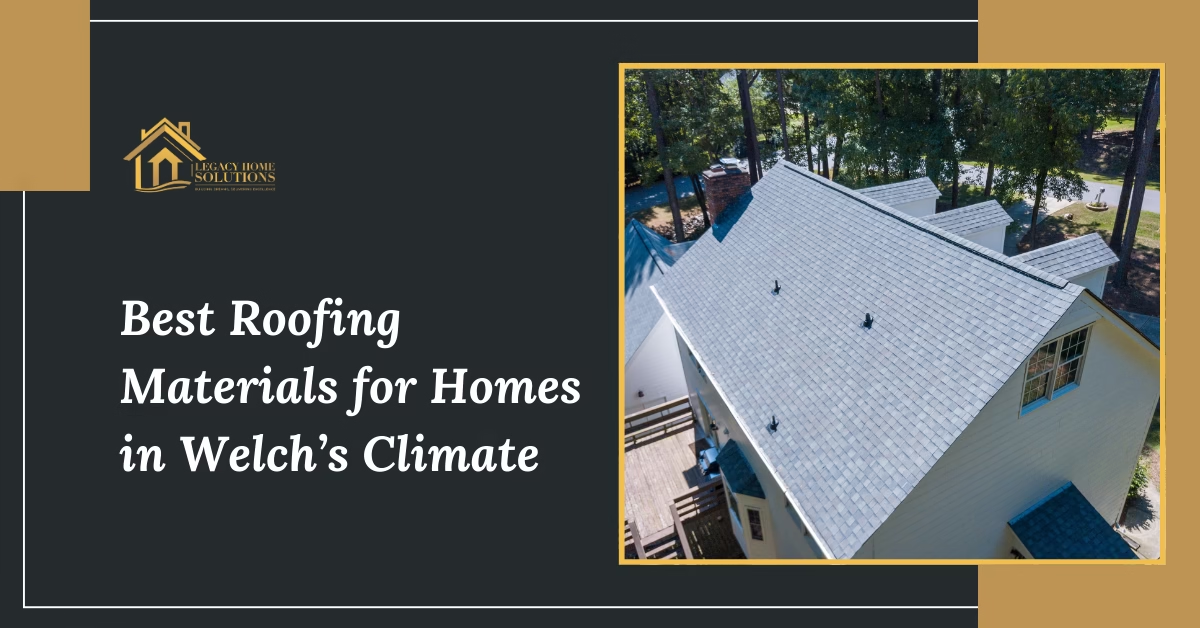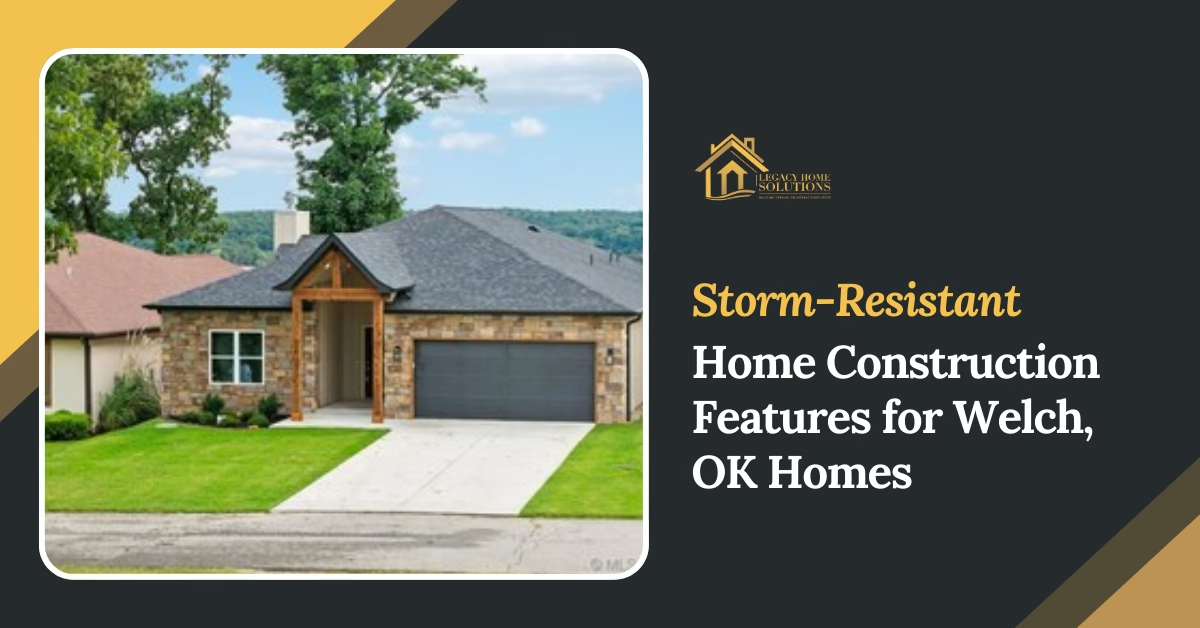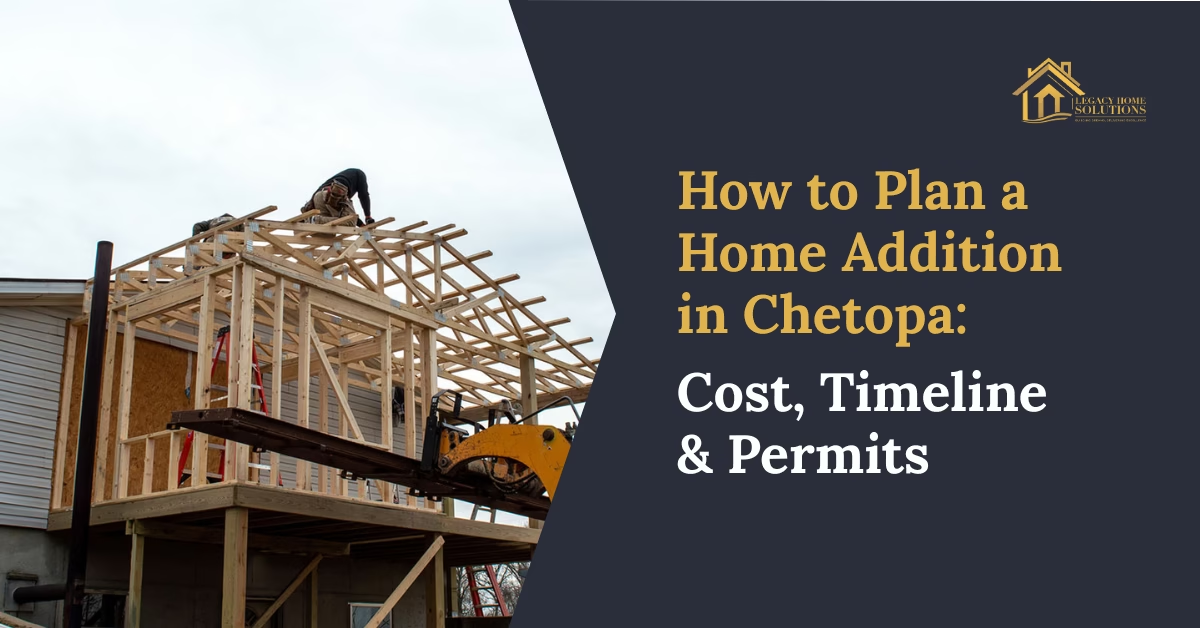It’s raining sideways. You’re juggling groceries, a wet toddler, and your keys, only to realize your garage is not connected to the house. Sound familiar? Many homeowners face this exact moment of frustration, torn between different garage build types when planning or remodeling.
Should you choose an attached garage for convenience or a detached one for flexibility? That’s the tug-of-war we’ll settle today. In this post, we’ll walk you through a real-world look at attached garage comparison versus detached garage benefits, helping you make the right call for your home—and your sanity.
What Is an Attached Garage?
Let’s start with the basics. An attached garage is exactly what it sounds like—a garage that shares at least one wall with your house. It typically has an interior door that opens directly into a hallway, mudroom, or kitchen, offering seamless access between your home and where you park your car.
These garages are common in suburban neighborhoods and are often built as part of the original home design. They usually connect to your home’s electrical system, and in many cases, HVAC and plumbing, too, depending on the level of finish.
Key features of attached garages:
- Direct access to the house
- Shared foundation and rooflines
- Easy access to utilities
- Common in production-style housing developments
So why do so many homeowners go with this option? Let’s take a closer look at the advantages.
Pros of an Attached Garage
1. Convenient Access—Especially When the Weather’s Nasty
Imagine not having to battle snow, rain, or 90-degree heat just to get from your car to your kitchen. That’s the major draw of an attached garage. It’s the convenience factor. No umbrellas. No dashes across a dark driveway. Just a short walk inside—dry, safe, and quick.
2. Budget-Friendly Construction
Here’s something your wallet will like: building an attached garage is generally cheaper than a detached one. Why? Because it shares walls, a roofline, and utilities with your house. Less material, less labor. You might even be able to tap into your home’s existing HVAC or electrical system, cutting costs further.
3. Added Security and Peace of Mind
An attached garage can boost your home’s security—assuming you keep the door locked. It lets you enter your home without stepping outside, which can be a big plus at night or if you’re carrying valuables.
And with good lighting and a secure garage door, it can be one more layer between your family and the outside world.
4. Expands Living Flow
Although a garage isn’t technically considered part of your home’s “livable square footage,” it sure can feel that way. It often serves as a mudroom, workshop, or even laundry area. The close connection to your home makes it easier to extend the living space creatively.
Still, no garage option is perfect. Let’s flip the coin and look at where attached garages fall short.
Cons of an Attached Garage
1. Unwanted Noise and Fumes
Got a teen who cranks up the music in the car? Or a partner who loves revving the engine? That noise can easily bleed into the house if the garage wall isn’t properly insulated. Plus, there’s the issue of fumes—carbon monoxide or gas odors can seep into the home if you don’t have proper ventilation.
2. Limited Design Flexibility
Because attached garages must align with the existing home structure, you’re working with tight parameters. Expanding or customizing them can be tricky, especially if zoning regulations or lot lines are tight. You’re essentially building around the house’s existing bones.
3. Can Reduce Curb Appeal
Depending on the design, an attached garage might dominate your home’s facade. In some cases, the garage is the first thing people see from the street, which isn’t always flattering. Think oversized doors and too much concrete. That “garage-first” look can hurt the aesthetics.
4. Vulnerable Entry Point
If someone can get into your garage, they might also get into your house. While this is preventable with strong locks and security systems, it’s worth mentioning, —especially in areas where security is a concern.
Now let’s explore the other side of the fence.
What Is a Detached Garage?
A detached garage is a standalone structure located somewhere else on your property, usually in the backyard or off to the side of the house. It doesn’t share any walls with the main home, and it has its own foundation and construction footprint.
Unlike their attached cousins, detached garages offer a blank canvas. Want a second-story studio or a workshop with plumbing? You’ve got space and flexibility to work with.
Key features of detached garages:
- Physically separate from the home
- Often used as workshops, studios, or guesthouses
- Ideal for larger properties
- Customizable in design and placement
Let’s talk about why some homeowners love them.
Pros of a Detached Garage
1. Design Freedom Galore
One of the biggest detached garage benefits is freedom. You’re not tied to the home’s existing structure or aesthetics. Want windows on all four sides? Done. Need more vertical space? Go two stories. You’re working with a fresh canvas, and the result can be a beautiful architectural addition to your property.
2. Better for Noise and Fume Control
When the garage is separate, so are the sounds and smells. No more fumes drifting into your kitchen, no more car alarms waking the baby. If you plan to run noisy tools or use it as a music studio or gym, the separation makes a big difference.
3. Boosts Curb Appeal
A well-designed detached garage can actually improve your home’s look. Placing it in the backyard or off to the side keeps the front of your home cleaner and more welcoming. This approach can improve symmetry and create a more balanced architectural profile.
4. Extra Security for Your Home
If someone breaks into a detached garage, they’re not inside your house. That’s a meaningful security advantage for some homeowners. It creates a clear physical barrier between storage or vehicles and the family’s living space.
But of course, there are some trade-offs. Let’s go through them.
Cons of a Detached Garage
1. Inconvenient in Bad Weather
This one’s obvious. No one wants to walk through a snowstorm just to get to their car or retrieve a box from storage. Detached garages can be annoying when the weather’s rough, especially if you’ve got kids, mobility concerns, or groceries to carry.
2. Generally More Expensive
A detached garage requires its own foundation, roof, and walls. You’ll also need to run utilities separately, like electricity or even plumbing. That adds up fast. If you’re building from scratch, be prepared for a bigger chunk of your budget.
3. Needs More Land
If your lot is tight, a detached garage might not be an option. It requires extra space—not just for the garage itself, but for access paths, driveways, and clearances. Urban and suburban homeowners may find it hard to make the layout work.
4. Utility Installations Take More Planning
Installing electricity, lighting, or internet into a detached structure isn’t impossible, but it’s an added step. You’ll need to trench lines underground, which can get expensive depending on your yard and soil.
This brings us to the big question…
Which One Is Right for You? Factors to Consider
No garage is one-size-fits-all. The right choice depends on your lifestyle, budget, and how you use your space.
1. Property Size and Layout
If you have a large lot, a detached garage opens up more design possibilities. But for tighter properties, attached garages can make better use of limited space. It’s also worth thinking about zoning rules in your city or neighborhood.
2. Budget Considerations
Looking for a cost-effective solution? Attached garages usually win here. But if you’re aiming for a garage that doubles as a guest suite or workshop, a detached structure might be a better long-term investment—even if the upfront cost is higher.
3. Intended Use
Do you need a place to park and unload groceries fast? Or are you dreaming of a woodworking studio away from the noise of the house? If it’s a high-use, utilitarian space, the attached garage comparison might win out. But if privacy or customization is more your goal, go detached.
4. Personal Preferences
Some people prioritize aesthetics. Others care more about convenience. Think about your daily routine. Will a few extra steps across the yard bother you? Do you mind that your garage is part of the front view of your home?
5. Local Climate
Live in Kansas or Missouri? Rain, snow, and cold are real factors. Walking through a storm to reach a detached garage might be more trouble than it’s worth. In regions with milder weather, it may be less of an issue.
Final Thoughts
Your garage isn’t just a structure — it’s an extension of your lifestyle. Whether you’re leaning toward the seamless flow of an attached space or the creative freedom of a detached setup, the right garage can make everyday life smoother and your property more functional.
At Legacy Home Solutions, we build more than garages — we build what makes your life easier. If you’re ready to stop weighing the pros and cons and start building something that works for you, now’s the time.
Explore your options, plan with confidence, and let us handle the details — whether it’s your next garage or commercial construction in Parsons.
Let’s bring your vision to life — one smart build at a time. Visit Legacy Home Solutions and take the first step today.
FAQs
Do attached garages affect home insurance differently than detached ones?
Attached garages may slightly increase insurance costs due to direct connection risks, while detached garages usually have less impact.
Can a detached garage be converted into living space?
Yes, detached garages can be remodeled into studios or guest houses, often requiring permits and utility upgrades.
Are maintenance needs different for attached vs. detached garages?
Attached garages may need more upkeep on shared walls and roofs, while detached garages require separate maintenance for all sides.
Do property taxes change with garage type?
Both types can raise property taxes, but detached garages might increase them more due to being a separate structure.




